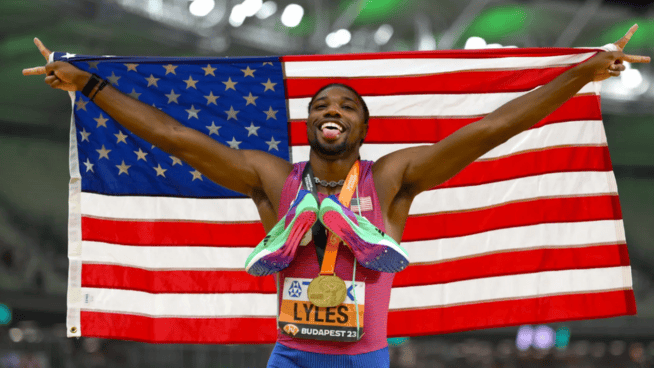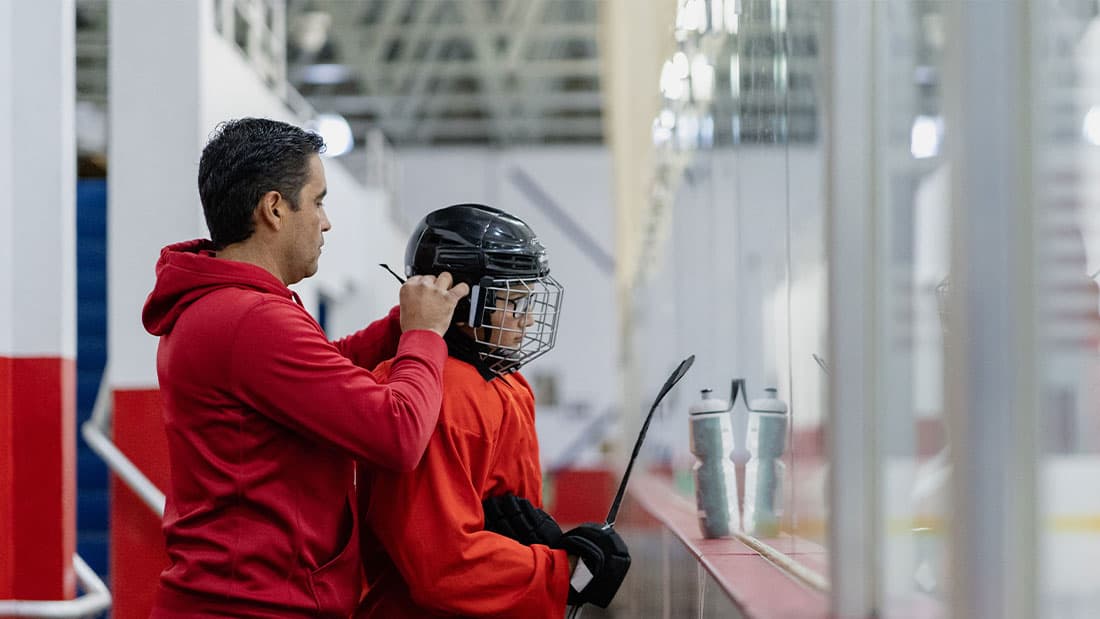New Study Reveals Whether Multi-Sport or Single-Sport Athletes Have a Better Chance For Success
“You’ve got to specialize if you want to be special.”
You may have heard similar sentiments before. However, a growing amount of research is finding that specializing in a single sport too early may be one of the worst decisions a young athlete can make.
A new study presented at the American Orthopaedic Society for Sports Medicine’s annual meeting found that specialization does not appear to increase a youth athlete’s chance of eventually achieving elite status in their sport. In fact, the opposite may be true.
“Our study, which is the largest study to date examining the topic of single sports specialization, provides a foundation for understanding current trends in specialization in youth sports,” said Patrick S. Buckley, MD of the Rothman Institute at Thomas Jefferson University Hospital (Philadelphia, PA), in a press release. “Our results noted that current high school athletes specialized, on average, two years earlier than current collegiate and professional athletes. The results of our study suggest that specialization at a very young age does not increase the likelihood of an athlete achieving elite status within his/her sport.”
The study involved distributing a survey to high school, collegiate and professional athletes prior to their yearly physical exams. A total of 3,090 athletes (503 high school, 856 collegiate and 1,731 professional) participated. The average age where athletes chose to specialize in a single sport varied between the three groups but was youngest among high schoolers. The average high school athlete begins specializing in their sport at 12.7 years old, while the average collegiate athlete specialized at 14.8 years old and the average pro athlete specialized at 14.1 years old.
One of the most telling findings in the study was that only 22.3% of professional athletes said they “would want their own child to specialize to play a single sport during childhood/adolescence.” This gels with what we’ve been hearing from many pros during recent years.
STACK recently caught up with Drew Brees during his offseason training and he felt compelled to share his thoughts on the topic. Here’s what the 10-time Pro Bowl quarterback had to say:
You name a sport, I probably played it. When I was a kid it was football, basketball, baseball, soccer, track, tennis. If there was a sport to be played, my brother and I were playing it. If there’s one thing I could say about youth sports, I think kids specialize too soon. I get all this travel ball and everything else, but I think that could be counter-productive. Because it forces these kids to feel like they need to specialize so soon, and they stop playing sports that they love and sports that can help them be better at their main sport. I credit tennis for a lot of my footwork in the NFL. I credit baseball and basketball with certain fundamentals and athletic movements (that relate) to what I do as a quarterback. You tell me the season, I’ll tell you the sport you should be playing. Kids should be playing as many sports for as long as they possibly can. Don’t feel like you have to specialize anytime soon. Because what you don’t realize is that all the sports combined is what makes you the athlete that you are. And eventually, you will have to specialize. But once that time comes, you will benefit greatly from all those other sports you played.
J.J. Watt expressed a similar sentiment via Twitter a few months ago:
If someone encourages your child to specialize in a single sport, that person generally does not have your child’s best interests in mind.
— JJ Watt (@JJWatt) March 7, 2017
Brees and Watt are just two examples. Athletes like Calais Campbell, Larry Fitzgerald, Chris Archer, Terrell Owens, Chad Johnson and Amar’e Stoudemire have also told STACK they believe playing multiple sports made them better overall athletes.
Of the 253 players drafted in the 2017 NFL Draft, nearly 90 percent played multiple sports in high school. Numbers like that are tough to ignore. The benefits of being a multi-sport athlete are immense. Playing different sports teaches your body to move in different ways and reinforces competitiveness. It also can reduce your chance of suffering a sports-related injury. In a different study presented at the same aforementioned AOSSM meeting, researchers found that high school athletes with a “high specialization classification” had an 85-percent higher incidence of lower extremity injuries than high school athletes with a “low specialization classification”. Essentially, athletes who specialized were found to be at a much higher risk of lower extremity injury than athletes who play and train in multiple sports.
READ MORE:
RECOMMENDED FOR YOU
MOST POPULAR
New Study Reveals Whether Multi-Sport or Single-Sport Athletes Have a Better Chance For Success
“You’ve got to specialize if you want to be special.”
You may have heard similar sentiments before. However, a growing amount of research is finding that specializing in a single sport too early may be one of the worst decisions a young athlete can make.
A new study presented at the American Orthopaedic Society for Sports Medicine’s annual meeting found that specialization does not appear to increase a youth athlete’s chance of eventually achieving elite status in their sport. In fact, the opposite may be true.
“Our study, which is the largest study to date examining the topic of single sports specialization, provides a foundation for understanding current trends in specialization in youth sports,” said Patrick S. Buckley, MD of the Rothman Institute at Thomas Jefferson University Hospital (Philadelphia, PA), in a press release. “Our results noted that current high school athletes specialized, on average, two years earlier than current collegiate and professional athletes. The results of our study suggest that specialization at a very young age does not increase the likelihood of an athlete achieving elite status within his/her sport.”
The study involved distributing a survey to high school, collegiate and professional athletes prior to their yearly physical exams. A total of 3,090 athletes (503 high school, 856 collegiate and 1,731 professional) participated. The average age where athletes chose to specialize in a single sport varied between the three groups but was youngest among high schoolers. The average high school athlete begins specializing in their sport at 12.7 years old, while the average collegiate athlete specialized at 14.8 years old and the average pro athlete specialized at 14.1 years old.
One of the most telling findings in the study was that only 22.3% of professional athletes said they “would want their own child to specialize to play a single sport during childhood/adolescence.” This gels with what we’ve been hearing from many pros during recent years.
STACK recently caught up with Drew Brees during his offseason training and he felt compelled to share his thoughts on the topic. Here’s what the 10-time Pro Bowl quarterback had to say:
You name a sport, I probably played it. When I was a kid it was football, basketball, baseball, soccer, track, tennis. If there was a sport to be played, my brother and I were playing it. If there’s one thing I could say about youth sports, I think kids specialize too soon. I get all this travel ball and everything else, but I think that could be counter-productive. Because it forces these kids to feel like they need to specialize so soon, and they stop playing sports that they love and sports that can help them be better at their main sport. I credit tennis for a lot of my footwork in the NFL. I credit baseball and basketball with certain fundamentals and athletic movements (that relate) to what I do as a quarterback. You tell me the season, I’ll tell you the sport you should be playing. Kids should be playing as many sports for as long as they possibly can. Don’t feel like you have to specialize anytime soon. Because what you don’t realize is that all the sports combined is what makes you the athlete that you are. And eventually, you will have to specialize. But once that time comes, you will benefit greatly from all those other sports you played.
J.J. Watt expressed a similar sentiment via Twitter a few months ago:
If someone encourages your child to specialize in a single sport, that person generally does not have your child’s best interests in mind.
— JJ Watt (@JJWatt) March 7, 2017
Brees and Watt are just two examples. Athletes like Calais Campbell, Larry Fitzgerald, Chris Archer, Terrell Owens, Chad Johnson and Amar’e Stoudemire have also told STACK they believe playing multiple sports made them better overall athletes.
Of the 253 players drafted in the 2017 NFL Draft, nearly 90 percent played multiple sports in high school. Numbers like that are tough to ignore. The benefits of being a multi-sport athlete are immense. Playing different sports teaches your body to move in different ways and reinforces competitiveness. It also can reduce your chance of suffering a sports-related injury. In a different study presented at the same aforementioned AOSSM meeting, researchers found that high school athletes with a “high specialization classification” had an 85-percent higher incidence of lower extremity injuries than high school athletes with a “low specialization classification”. Essentially, athletes who specialized were found to be at a much higher risk of lower extremity injury than athletes who play and train in multiple sports.
READ MORE:











